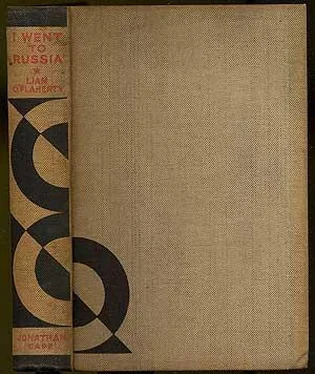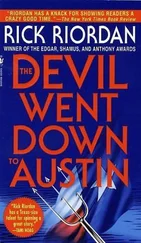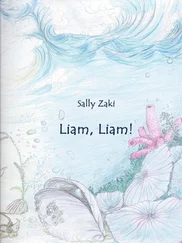Liam O'Flaherty - I Went to Russia
Здесь есть возможность читать онлайн «Liam O'Flaherty - I Went to Russia» весь текст электронной книги совершенно бесплатно (целиком полную версию без сокращений). В некоторых случаях можно слушать аудио, скачать через торрент в формате fb2 и присутствует краткое содержание. Город: London, Год выпуска: 2011, ISBN: 2011, Издательство: Bloomsbury Publishing, Жанр: Публицистика, на английском языке. Описание произведения, (предисловие) а так же отзывы посетителей доступны на портале библиотеки ЛибКат.
- Название:I Went to Russia
- Автор:
- Издательство:Bloomsbury Publishing
- Жанр:
- Год:2011
- Город:London
- ISBN:9781448205592
- Рейтинг книги:5 / 5. Голосов: 1
-
Избранное:Добавить в избранное
- Отзывы:
-
Ваша оценка:
- 100
- 1
- 2
- 3
- 4
- 5
I Went to Russia: краткое содержание, описание и аннотация
Предлагаем к чтению аннотацию, описание, краткое содержание или предисловие (зависит от того, что написал сам автор книги «I Went to Russia»). Если вы не нашли необходимую информацию о книге — напишите в комментариях, мы постараемся отыскать её.
I Went to Russia — читать онлайн бесплатно полную книгу (весь текст) целиком
Ниже представлен текст книги, разбитый по страницам. Система сохранения места последней прочитанной страницы, позволяет с удобством читать онлайн бесплатно книгу «I Went to Russia», без необходимости каждый раз заново искать на чём Вы остановились. Поставьте закладку, и сможете в любой момент перейти на страницу, на которой закончили чтение.
Интервал:
Закладка:
‘Come on the bridge with me. I want to show you something on that island.’
I went on the bridge and examined the island through his glasses. I could see nothing but a forest that came down almost to the water’s edge. I told him so.
‘Ha!’ he cried in a sinister tone. ‘You can see nothing. It’s well concealed, their bloody plot. But I tell you, although you see only trees and a deserted place, this island is another Heligoland, bought by the bourgeoisie to make war on Soviet Russia. It was bought by the English from this bloody little republic that was once part of the Russian Empire and is now paid by the English to act as a buffer state against the advance of the Soviet Union. The bloody swine are building an aerodrome on it. They are preparing to jump on us from that place, to murder our women and children and destroy our machines with their bombs. Ha!’
He struck the rail a violent blow and cried:
‘But we’ll drive the bastards back, as our forefathers drove back Napoleon and the combined forces of Imperialist Europe. The Soviet Union is indestructible. We shall fight them to the last peasant and to the last hut and to the last crust of black bread.’
I could see no hangars. I saw no activity whatsoever on the island. If there were any Englishmen there, they must have been lying asleep in the forest or having a game of billiards somewhere in a cave. But perhaps the captain was right and that there were Englishmen hiding in the trees. On the other hand, it is equally possible that the captain’s imagination was running away with him. His subconscious desire to conquer Europe may have prompted him to believe that the English were aware of this desire and wished to forestall it.
Be that as it may, the island, with its suggestion of secret plots, and wars, hangars, and Englishmen hiding in trees, increased my terror of Russia.
That afternoon my terror became still more intense. On entering the saloon for afternoon tea, I was startled to hear the Leningrad Broadcasting Station. A choir of revolutionary maidens and youths was singing revolutionary songs in Leningrad. Those officers who were listening clapped their hands in unison with the beat of the chorus. Their eyes glittered with excitement and they struck the table violently as the air halted suddenly on a high note, in the strange wild manner of Russian songs. Like all Russian songs, the air was melancholy, but ecstatic and triumphant.
I was exalted by the singing. I could see people wandering over vast plains, searching. I heard the wind singing in the long faded grasses of the steppes. It was a voice weary of wandering, melancholy with suffering, but triumphant in sight of its goal. It was the voice of the children of Russia coming out of the land of bondage, out of servitude, out of savagery, out of subjection to the brutal vastness of their country. It was the voice of a people who had found a prophet and listened to his exhortation and rose up in a mass, united, enthused by his genius. What a tumult! What a host of marching men and women! Famine thins them by millions but they march, pressed on by great hordes in their rear. Their blood is dark like their earth. Their passions are fierce. They are simple like children and savage like the wolves in their forests. Their dancing is barbaric. Their singing is a wild chant, full of the earth’s richness, but terrible to our ears, like the crying of animals in a forest afar off. It is an avalanche, this downpour of countless millions, pouring down on Europe, singing, dancing, wailing, lean with hunger.
The choir ceased. There was a pause during which I remained entranced. Then a man began to speak.
‘Young Communists . . . the industrialisation . . . the socialisation . . . Soviet Union . . . capitalism . . . foreign . . . Lenin . . . your role . . . our revolution . . . our party . . . victory. . . ,.’
Although I could only understand an occasional word, his meaning was plain as if he had spoken in English. It was a pattern speech, exactly like the speeches I had heard on board the ship. It was a war cry urging on these youths to the conquest of the world. What power machinery has given to the apostles of this new religion! For to the unlettered multitudes of Russia, this wireless speech, carried on the empty air, must appear a greater miracle than the rumour of water being changed into wine by a former prophet. Always repeating the same message as from a new Koran:
‘The machine is God and Lenin is his prophet. All power to the proletariat. There are two classes, the working class and the capitalist class. Down with the bourgeoisie. Liquidate illiteracy.’
A host of slogans that are handed down from the prophet Lenin, as the rather foolish sentences of the Koran were handed down from the prophet Mahomed to urge on the Moslems. Phew! The Russian bear is no longer to be mocked, nor must jokes be cracked about his shaggy beard and the lice that were always with him, poor wretch, before he discovered this new god.
The captain sat beside me at tea and talked proudly of the power of wireless.
‘It is only when I return from abroad to the Soviet Union,’ he said, ‘that I realise what wonderful use can be made of wireless. In England and in other bourgeois countries, wireless is used principally to broadcast useless entertainment. In our Union it is used entirely for propaganda, to consolidate existing revolutionary victories and to spread the revolution. I am proud that wireless is a Russian invention. A naval officer invented it, but the Tsar’s government was too stupid to use it, so Marconi got the patent. But that does not matter. Now wireless is doing greater work in Russia than in rest of the world. It is showing our youth the way to travel. We have cleared the foundations. We have destroyed Tsarism. They shall build socialism.’
‘And capitalist Europe? It’s not yet in ruins.’ ‘It shall be brought to ruins. On its ruins perhaps the Soviet Union will engage in the final war, against the Iron Heel of America.’
When I came on deck in the morning we were abreast of Kronstadt. It was my first view of Russian territory and it was not impressive. It was more like an ambitious ruin than the naval headquarters of a great country. The docks were there, the buildings, the monuments; but life seemed to be extinct. Looking at it, I felt ashamed of myself for believing that Russia harboured within its being the dynamic force to conquer the world.
Kronstadt looked like a fresh corpse, which still retains the form of human beauty, but is rapidly becoming a mass of corruption. All the great buildings were still intact, shining in the morning light, all the great offices of Tsarist imperial power. But they were desolate and unkempt. The great docks that were capable of holding scores and scores of ships lay empty. The quays were deserted. All was as silent and forbidding as a great city whose inhabitants have been suddenly cut down by a plague. The destruction of war had not been there, to cheer the mind with an impression of fierce conflict. There was nothing to cheer the mind; just a sad memory that a great empire had passed that way, had used this port as its mouth and then disappeared. A wretched flotilla of Soviet destroyers only increased the impression of miserable desolation. There was a cruiser at anchor as we passed. The men were at exercise on her decks. Our men cheered. The naval men waved their caps. It was revolutionary but sadly lacking in dignity.
We lay for a little while waiting for a pilot. My eyes became attuned to the strangeness of the scene. Then it did not look so desolate. At least I began to understand the desolation. It was not, perhaps, a sign of Russian weakness, but of a change in Russian policy. By looking back over Russian history an interesting theory sprang into my mind with the vividness of a drama. It was that the whole of Russian history, from the beginning of the Tsarist period to the present day and on into the future, is a direct continuation of the will to conquer the world. When the Romanoffs took charge of the savage Russian hordes, it was but natural that their eyes turned towards their native Europe. By the defeat of Sweden, they were enabled to build their headquarters at the mouth of the Neva, a city completely European, where their people were enabled to assimilate European culture, take part in the affairs of Europe and begin to plunder its intelligence. Thither they brought all its philosophies, its literature, its art, its mechancial inventions. They built a fleet and quartered it here at Kronstadt. Then came the Great War, when all the great European nations struggled for hegemony. Down swept the Russian hordes into Germany and Austria and Poland. They were driven back, slaughtered by the million. The Tsars were overthrown. But the Russian colossus reorganised itself and crept away towards the East, away from these doorways into Europe which the European Tsars had built. The wise Lenin, armed with all the newest ideas of European statecraft, retired on Moscow with his people and began a new policy of Russian expansion, towards the East.
Читать дальшеИнтервал:
Закладка:
Похожие книги на «I Went to Russia»
Представляем Вашему вниманию похожие книги на «I Went to Russia» списком для выбора. Мы отобрали схожую по названию и смыслу литературу в надежде предоставить читателям больше вариантов отыскать новые, интересные, ещё непрочитанные произведения.
Обсуждение, отзывы о книге «I Went to Russia» и просто собственные мнения читателей. Оставьте ваши комментарии, напишите, что Вы думаете о произведении, его смысле или главных героях. Укажите что конкретно понравилось, а что нет, и почему Вы так считаете.












